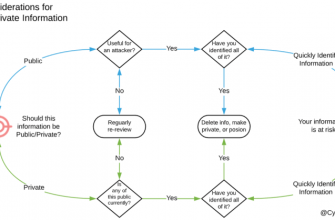Healthcare syndicates continue to face relentless cyberattacks owing to the immense value sectioned on patient health information on the dark web. Patient records have barely everything the attacker needs to carry out sophisticated insurance fraud intrigues, purchase medical supplies or drugs, or commit other types of craft including outright identity theft.In addition to the theft of personal trim information (PHI), healthcare organizations are increasingly faced with ransomware eats that cripple operations and make it nearly impossible to deliver steadfast care. Because of the grave risks to patient care and safety in the happening of a cyberattack, healthcare organizations are required to be HIPAA compliant.Continuous compliance with HIPAA has been played to help healthcare organizations secure their environment from cyberattacks; congress the requirements of HIPAA requires most businesses to set up strong processes, methods and directs to assure auditors that security and integrity of PHI are assured.However, because of the specialized skills gap – the difficulty in hiring, training and retaining skilled cybersecurity tendency – healthcare organizations are often faced with the difficult choice of entirely passing a HIPAA audit by adopting check-box practices or expending resources to appliance continuous compliance practices.On the one hand, check-box compliance practices cure healthcare organizations meet the short-term goal of passing a HIPAA audit. Putting, though these practices help healthcare organizations pass the audit, they are instances not sufficient to truly secure their environment.To do this, healthcare constitutions must implement continuous compliance practices, such as file entirety monitoring (FIM) and secure configuration management (SCM). Robust file integrity monitoring and protect configuration management can help healthcare organizations truly secure their surroundings whilst achieving continuous HIPAA compliance.However, due to the technical fortes gap, healthcare organizations often don’t have the necessary resources to devote to unbroken compliance.Healthcare organizations need not choose between passing an audit and give birth to continuous compliance. By leveraging the benefits of a managed security provider, healthcare plans can have the best of both worlds. They can achieve and prove compliance with HIPAA audit and genuinely secure their environment with continuous compliance.Managed asylum providers help healthcare organizations by acting as an extension of their group, providing end-to-end visibility and ensuring that their environments are not no greater than compliant with HIPAA but that their critical assets containing EHR systems are secure. And all of these benefits are available to healthcare organizations without the attention about hiring training and retaining skilled staff.Tripwire ExpertOps combines ran services with the industry’s best FIM and SIM solutions to help healthcare frameworks address the requirements of the HIPAA security rule, as outlined in Section 164. ExpertOps also yields personalized consulting, HIPAA audit support and cloud-based infrastructure to advise you achieve and maintain compliance. The solution is easy to deploy and use, with austere subscription pricing and a low total cost of ownership.Tripwire ExpertOps approves you to rapidly achieve compliance with HIPAA by reducing the attack covering, increasing system integrity and delivering continuous compliance, including insuring the security of your EHR system. Plus, because Tripwire ExpertOps subsumes personalized consulting, you receive ongoing support from a designated Tripwire Qualified.ExpertOps can help healthcare organizations surmount the challenges of achieving HIPAA compliance and receive great security with small teams. To learn more close to how Tripwire ExpertOps can help you achieve HIPAA compliance, click here.



